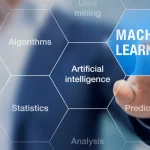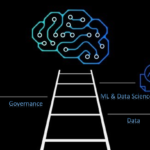Study highlights impact of demographics on AI training
A collaborative study conducted by Prolific, Potato, and the University of Michigan has shed light on a critical aspect of AI model development: the profound influence of annotator demographics on the training of AI systems. This study delved into the intricate interplay of age, race, and education on the data used to train AI models, revealing potential pitfalls where biases might seep into the very fabric of these systems.
In today’s world, AI models like ChatGPT have become integral to everyday tasks for many individuals. However, as Assistant Professor David Jurgens of the University of Michigan School of Information points out, we need to critically examine whose values are being embedded into these trained models. If we overlook differences and fail to consider diverse perspectives, we risk perpetuating marginalization of certain groups in the technologies we rely on.
The process of training machine learning and AI systems often involves human annotation to guide and refine their performance. This “Human-in-the-loop” approach, also known as Reinforcement Learning from Human Feedback (RLHF), entails individuals reviewing and categorizing the outputs of language models to enhance their accuracy and appropriateness.
One of the standout findings of this study revolves around the impact of demographics on assessing offensiveness. Intriguingly, the research uncovered that different racial groups held distinct perceptions of what constitutes offensive online comments. For instance, Black participants tended to rate comments as more offensive compared to individuals from other racial backgrounds. Age also played a role, with participants aged 60 and above being more inclined to label comments as offensive compared to their younger counterparts.
The study, encompassing an analysis of 45,000 annotations contributed by 1,484 annotators, spanned a diverse array of tasks. These tasks ranged from detecting offensiveness and answering questions to assessing politeness. The research outcomes highlighted that demographic factors extend their influence even into ostensibly objective tasks like question answering. It was particularly intriguing to observe that factors such as race and age influenced the accuracy of question responses, reflecting disparities that stem from differences in educational opportunities.
Politeness, a pivotal aspect of interpersonal communication, was also found to be significantly influenced by annotator demographics. The study revealed that women tended to attribute lower levels of politeness to messages compared to men. Moreover, older participants were more inclined to assign higher politeness ratings. Interestingly, participants with higher levels of education were more likely to assign lower politeness ratings, and variations were evident among different racial groups and Asian participants.
The implications of this study are profound. As AI systems become more integrated into various aspects of our lives, it becomes imperative to address and mitigate the biases that may arise from the data used to train them. Acknowledging the influence of annotator demographics underscores the importance of diverse and representative input during the development of AI models. By fostering inclusivity and considering a wide range of perspectives, we can pave the way for AI systems that are fair, accurate, and respectful to all users.


































